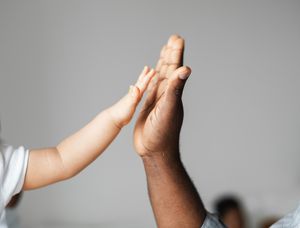
According to Mental Health of America, codependency is characterized by a person belonging to a dysfunctional, one-sided relationship where one person relies on the other for meeting nearly all of their emotional and self-esteem needs. It also describes a relationship that enables another person to maintain their irresponsible, addictive, or underachieving behavior.
Think of the most unhappy couple you’ve ever met. You may wonder why these people are still together. Adults are willing participants in partnerships. And as unhealthy as relationships may be, there can be gains for both parties. Common reasons for sticking together include children, finances, time invested, and fear of the shame that may come with splitting up. But the bigger issue is the belief that one or both people believe they deserve to be mistreated.
How does a codependent relationship develop?
Substance addiction
According to dual diagnosis rehab facility, Acceptance Recovery Center, codeepdence and substance addiction go hand in hand. Codependency was first noticed in the 1950s by psychotherapists treating clients with alcoholism. They found that often a spouse or partner helped to maintain the addictive behaviour.
As far as individual causes, therapists now consider a range factors which contribute to codependent behaviour. These include chemical imbalances in the brain, childhood experiences, current life situation, addiction history and past relationships.
Damaging parental relationships
People who are codependent as adults often had problems with their parental relationship as a child or teenager.They may have been taught that their own needs were less important than their parents’ needs, or not important at all.
In these types of families, the child may be taught to focus on the parent’s needs and to never think of themselves. Needy parents may teach their children that children are selfish or greedy if they want anything for themselves. As a result, the child learns to ignore their own needs and thinks only of what they can do for others at all times.
Living with a mentally or physically ill family member
Codependency may also result from caring for a person who is chronically ill. Being in the role of caregiver, especially at a young age, may result in the young person neglecting their own needs and developing a habit of only helping others.
A person’s self-worth may form around being needed by another person and receiving nothing in return. Many people who live with an ill family member do not develop codependency. But, it can happen in these types of family environments, particularly if the parent or primary caretaker in the family displays the dysfunctional behaviors listed above.
Abusive families
 Physical, emotional, and sexual abuse can cause psychological problems that last years or even an entire lifetime. One of the many issues that can arise from past abuse is codependency.
Physical, emotional, and sexual abuse can cause psychological problems that last years or even an entire lifetime. One of the many issues that can arise from past abuse is codependency.
A child or teenager who is abused will learn to repress their feelings as a defense mechanism against the pain of abuse. As an adult, this learned behavior results in caring only about another’s feelings and not acknowledging their own needs. Sometimes a person who is abused will seek out abusive relationships later because they are only familiar with this type of relationship. This often manifests in codependent relationships.
Symptoms of codependency
According to the Mental Health America, a person who is codependent will usually:
- Find no satisfaction or happiness in life outside of doing things for the other person.
- Stay in the relationship even if they are aware that their partner does hurtful things.
- Do anything to please and satisfy their enabler no matter what the expense to themselves.
- Feel constant anxiety about their relationship due to their desire to always be making the other person happy.
- Use all their time and energy to give their partner everything they ask for.
- Feel guilty about thinking of themselves in the relationship and will not express any personal needs or desires.
- Ignore their own morals or conscience to do what the other person wants.
 Other people may try to talk to the codependent about their concerns. But even if others suggest that the person is too dependent, a person in a codependent relationship will find it difficult to leave the relationship.
Other people may try to talk to the codependent about their concerns. But even if others suggest that the person is too dependent, a person in a codependent relationship will find it difficult to leave the relationship.
The codependent person will feel extreme conflict about separating themselves from the enabler because their own identity is centered upon sacrificing themselves for the other person.
Co-dependents have low self-esteem and look for anything outside of themselves to make them feel better. They find it hard to “be themselves.” Some try to feel better through alcohol, drugs or nicotine – and become addicted. Others may develop compulsive behaviors like workaholism, gambling, or indiscriminate sexual activity.
Treatment
 According to Acceptance Recovery Center few things can help toward forming a positive, balanced relationship:
According to Acceptance Recovery Center few things can help toward forming a positive, balanced relationship:
- People in codependent relationships may need to take small steps toward some separation in the relationship. They may need to find a hobby or activity they enjoy outside of the relationship.
- A codependent person should try to spend time with supportive family members or friends.
- The enabler must decide that they are not helping their codependent partner by allowing them to make extreme sacrifices.
Individual or group therapy is very helpful for people who are in codependent relationships. An expert can help them find ways to acknowledge and express their feelings that may have been buried since childhood. People who were abused will need to recognize past abuse and start to feel their own needs and emotions again.
Finally, both parties in a codependent relationship must learn to acknowledge specific patterns of behavior, such as “needing to be needed” and expecting the other person to center their life around them. These steps are not easy to do but are well worth the effort to help both parties discover how to be in a balanced, two-sided relationship.
One Comment
Top posted on July 24, 2024 at 2:39 pm
The codependent person will feel extreme conflict about separating themselves from the enabler because their own identity is centered upon sacrificing themselves for the other person.